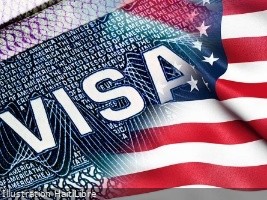A recent report from the U.S. Department of State has unveiled a concerning trend in visa refusals, with citizens of Cuba, El Salvador, and Haiti facing the highest rejection rates for U.S. visa applications. The data, reflecting the end of fiscal year 2024, shows that more than half of B1/B2 visa applications (for tourism or business) were denied for Cubans, at a staggering 53.35%. El Salvador followed closely with a 52.65% refusal rate, while Haiti recorded a 47.35% rejection rate. This stark contrast highlights the immigration challenges faced by these nations, particularly in comparison to other Latin American countries like Panama, Argentina, and Brazil, where acceptance rates are notably higher. In Haiti’s case, the high refusal rate is attributed to ongoing political and economic instability, which raises concerns among U.S. consular officers about the risk of irregular migration. Conversely, countries with greater economic stability and lower migratory pressure, such as Uruguay, Chile, and Argentina, enjoy significantly lower refusal rates. Experts predict that rejection rates will remain elevated in nations grappling with economic crises and political tensions. They recommend that applicants submit comprehensive documentation, demonstrate strong ties to their home country, and prepare thoroughly for consular interviews to improve their chances of approval. This advice comes amid a broader context of increasingly stringent U.S. immigration policies.
